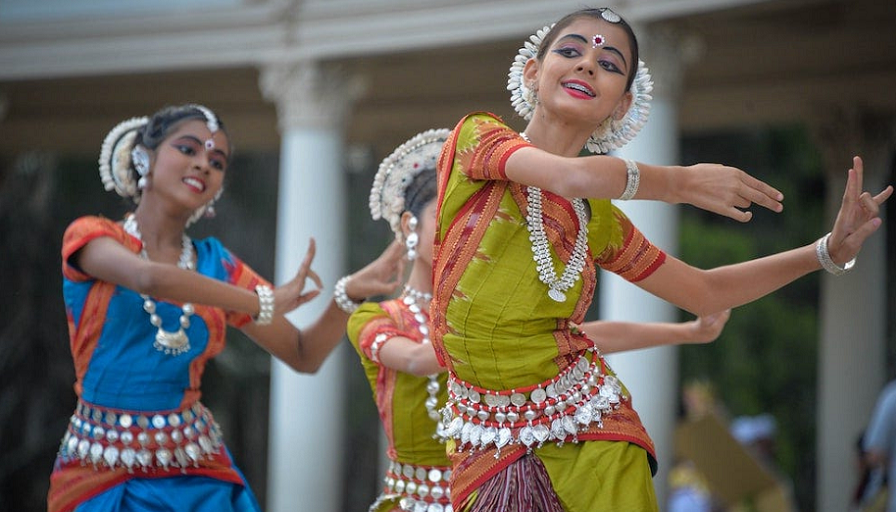
Throughout history, people around the world have engaged in various celebrations to honor their past. These cultural events not only preserve traditions but also create a bridge between generations, allowing us to connect with our ancestors and appreciate where we came from. In this journey through time, we look at some fascinating cultural celebrations that keep history alive and vibrant in the modern world.
Contents
- Dia de los Muertos: The Day of the Dead
- Chinese New Year: Welcoming Prosperity
- Genealogy: Discovering Your Roots
- Hanami: Celebrating Nature and Heritage
- Oktoberfest: A Toast to Tradition
- Diwali: Festival of Lights
- Day of the Ancestors in Madagascar
- Bon Festival in Japan: Reunion of Souls
- Guelaguetza in Mexico: A Dance of Unity
- Bridging the Gap Between Past and Present
Dia de los Muertos: The Day of the Dead
Originating in Mexico, Dia de los Muertos, or the Day of the Dead, is a colorful and joyful festival that takes place on November 1st and 2nd. While it might sound somber, it is far from it. This celebration is all about remembering and honoring loved ones who have passed away.
During Dia de los Muertos, families create altars in their homes, decorated with photographs, marigold flowers, and offerings such as food and personal items that the deceased cherished. Cemeteries become lively places, filled with music, laughter, and memories shared by family members. It’s a time to celebrate life and the continuing presence of ancestors in our lives.
Chinese New Year: Welcoming Prosperity
Chinese New Year, also known as the Spring Festival, is a major event marked by vibrant parades, fireworks, and family gatherings. Celebrated by Chinese communities worldwide, this festival combines ancient traditions with modern festivities to welcome the new year on the lunar calendar, usually falling between late January and early February.
The cultural aspects of Chinese New Year focus heavily on honoring ancestors and receiving blessings for the future. Families pay homage to their ancestors by cleaning their homes to sweep away bad luck and decorating with red lanterns and couplets to attract good fortune. The festival is a reminder of the importance of family bonds and respect for those who came before us.
Genealogy: Discovering Your Roots
Understanding and celebrating one’s heritage isn’t confined to grand festivities; it also finds expression in the quiet journey of genealogy. Genealogy is the study of family ancestry and tracing lineage. It’s like being a detective, piecing together the puzzle of your family’s past through historical records, oral histories, and DNA testing.
Genealogy allows individuals to deepen their understanding of their cultural heritage and identity. By uncovering stories of ancestors, people often gain a new perspective on historical events and societal changes. It’s a way to honor the lives and experiences of those who shaped the world we live in today.
Hanami: Celebrating Nature and Heritage
In Japan, Hanami is a festival devoted to appreciating the beauty of cherry blossoms, known as sakura. While it might appear as simply admiring flowers, Hanami holds cultural significance that stretches back centuries.
The blooming of sakura signifies the fleeting nature of life, a concept deeply rooted in Japanese culture. As people gather under cherry blossom trees for picnics and festivities, they reflect on their ancestry and the passage of time. It’s a celebration that links natural beauty to the lessons of the past, reminding us to savor each moment.
Oktoberfest: A Toast to Tradition
Oktoberfest is a renowned festival held annually in Munich, Germany, characterized by its lively atmosphere, traditional music, and, of course, beer. But beyond the festivities, Oktoberfest is a celebration with historical roots dating back to 1810, when it began as a royal wedding celebration.
Attending Oktoberfest is like stepping back in time, with participants dressed in traditional Bavarian clothing such as lederhosen and dirndls. The festival is a tribute to Bavarian culture and heritage, showcasing traditional foods, craftsmanship, and music, allowing people from around the world to immerse themselves in German history.
Diwali: Festival of Lights
Diwali, known as the Festival of Lights, is celebrated across India and by Indian communities around the globe. This five-day festival signifies the triumph of light over darkness and good over evil, drawing from ancient Hindu mythology.
Families light oil lamps and decorate their homes with colorful rangoli patterns to invite prosperity and happiness. Diwali is not only a time for merriment and feasting but also an occasion to honor ancestors through prayers and rituals. It’s a reminder of the spiritual heritage passed down through generations.
Day of the Ancestors in Madagascar
In Madagascar, the Famadihana, or the “turning of the bones,” is a unique festival where families honor their ancestors by exhuming their remains, rewrapping them in fresh cloth, and celebrating with music and dance. This ritual, held every five to seven years, is a profound expression of respect and remembrance.
During Famadihana, families gather to share stories of their ancestors’ lives, preserving oral history and cultural practices. This celebration highlights the belief that the spirits of the deceased watch over the living and emphasizes the continuing connection between past and present.
Bon Festival in Japan: Reunion of Souls
The Bon Festival, or Obon, is celebrated in Japan to honor the spirits of the deceased. Traditionally held in mid-August, Obon is a time when the souls of ancestors are believed to return to the world of the living. Families gather to clean ancestral graves, light lanterns, and perform traditional dances known as Bon Odori to welcome these spirits.
Obon is characterized by its deep roots in both Shinto and Buddhist traditions, highlighting an enduring respect for one’s forebears. It fosters familial bonding and serves as a renewal of spiritual beliefs, reminding celebrants of the timeless link between past and present generations.
Guelaguetza in Mexico: A Dance of Unity
In the southern Mexican state of Oaxaca, the Guelaguetza festival is a vibrant celebration of indigenous culture and community. Held in July, it brings together different ethnic groups to share music, dance, and traditional costumes. The word “Guelaguetza” stems from the Zapotec language, meaning reciprocal exchange of gifts and services.
This festival is not only a homage to the rich cultural diversity within Oaxaca but also an embodiment of unity and cooperation among its people. The Guelaguetza exemplifies the shared values and common history that bind the various communities, serving as a living tapestry of Oaxaca’s ancestral heritage.
Bridging the Gap Between Past and Present
Cultural celebrations that honor the past offer a meaningful way to bridge the gap between ancestors and descendants. They provide an opportunity to connect with our heritage, learn from history, and celebrate the lasting influence of those who came before us. Whether through grand festivals or quiet acts of remembrance, these events enrich our lives by keeping the past alive in the present.

